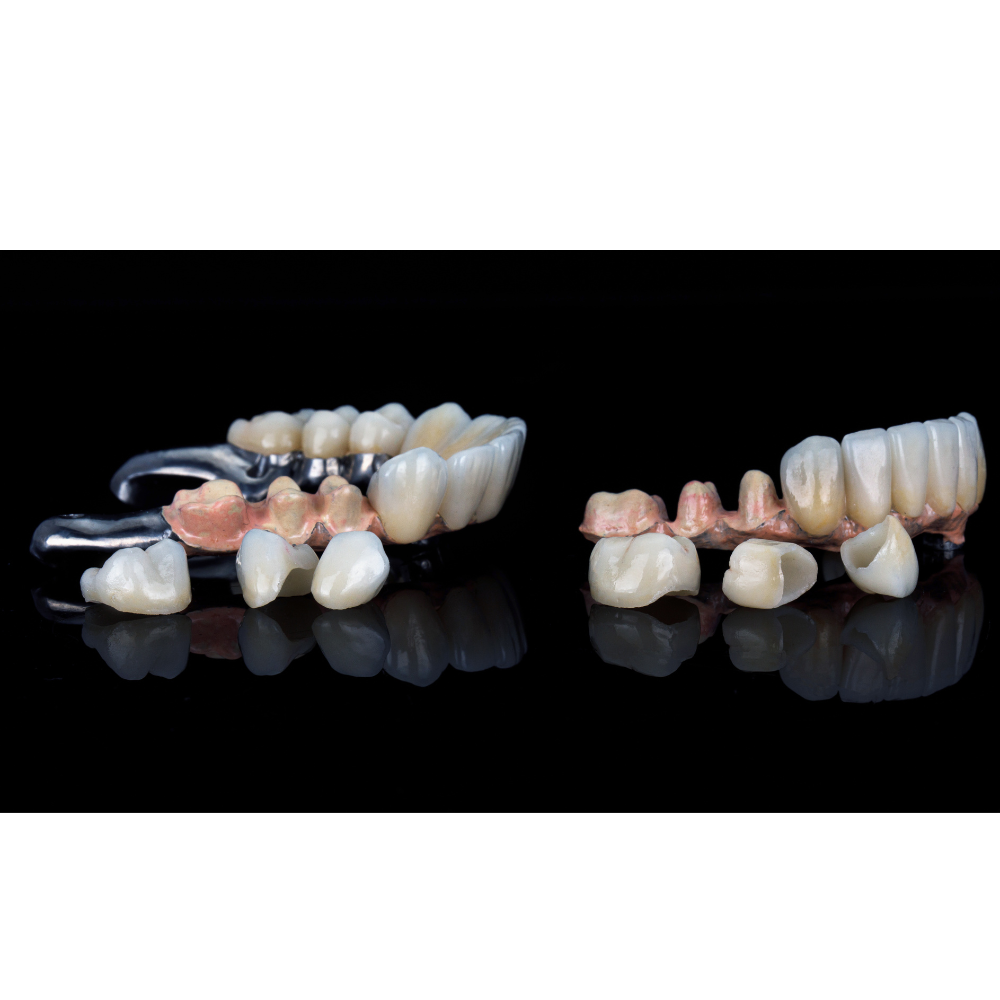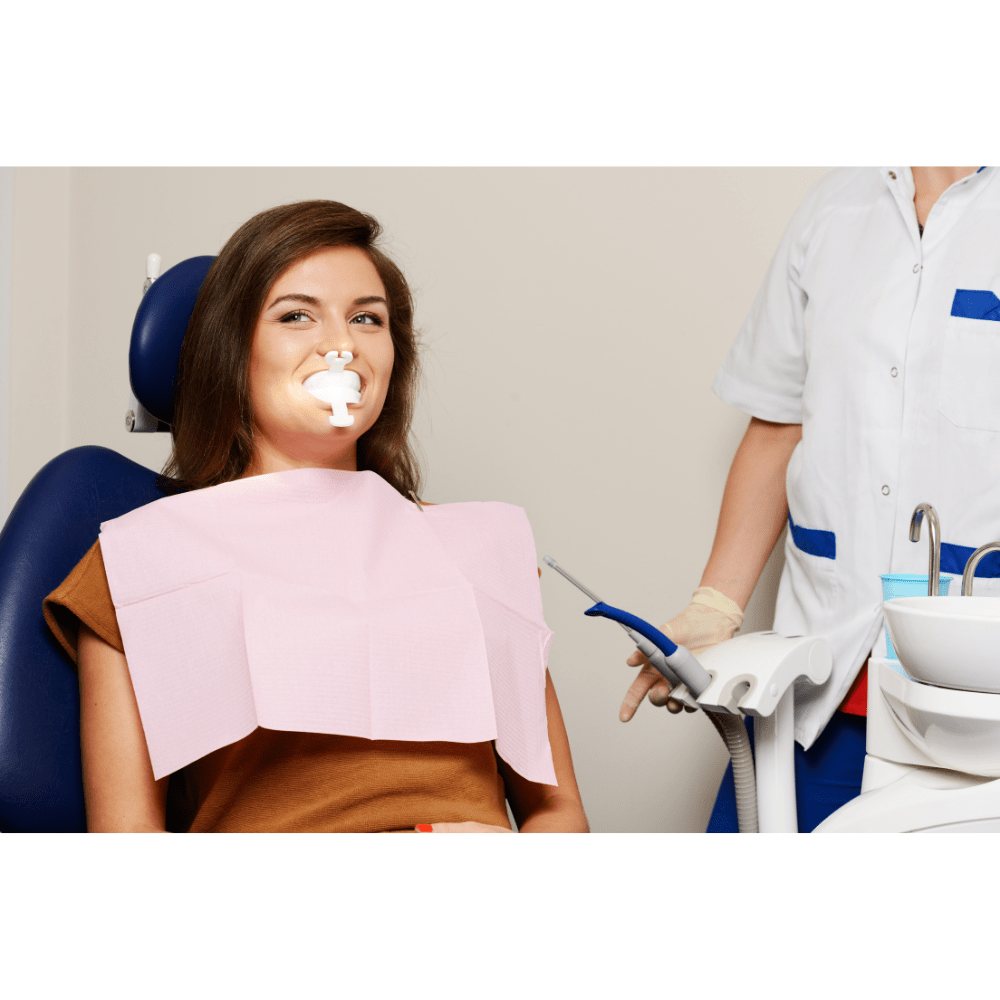Getting Rid of Canker Sores From Braces
Canker sores from braces can be a real pain when you’re rocking braces. Many people wonder if braces cause these painful mouth ulcers. Clinical experiences and research have shed light on the potential causes of these bothersome sores.
So, what’s the deal? Here we will explore the connection between braces and canker sores. This will help you understand the why and how to manage these frenemies for a smoother smile journey! The first thing you need to know is whether braces can cause canker sores.
Can Canker Sores from Braces Happen?
Yes, braces can potentially cause canker sores for some individuals. The presence of braces introduces new elements to the oral environment, such as wires, brackets, and bands, which can occasionally irritate the soft tissues inside the mouth. This irritation, along with factors like friction and pressure can contribute to the development of canker sores.
How to Treat Mouth Sores From Braces
Individuals experiencing mouth sores from braces have several treatment options available to alleviate discomfort and promote healing. Here are some common approaches:
Orthodontic Wax:
Simply roll a small piece of wax into a ball and place it over the area of the braces. This can provide immediate relief and allow the sores to heal without further irritation.
Saltwater Rinse:
Gargling with a saltwater solution can help soothe mouth sores from braces and promote healing. Mix about half a teaspoon of salt into a cup of warm water and swish the solution around in your mouth for 30 seconds to a minute before spitting it out.
Pain Medication:
Over-the-counter pain medications like ibuprofen or acetaminophen, Anbesol, Milk of Magnesia, or Oragel can help alleviate discomfort from mouth sores due to braces. Follow the dosage instructions provided on the packaging and consult with a healthcare professional if you have any concerns or underlying medical conditions.
Topical Analgesics:
Topical analgesic medications, such as benzocaine-based gels or numbing creams, can be applied directly to the affected area to alleviate pain and discomfort. These medications work by temporarily numbing the nerves in the mouth, providing relief from soreness.
Preventive Measures For Blisters From Braces
Here are some preventive measures for blisters from braces:
Use Dental Silicone Pads:
Silicone pads can be placed over brackets or wires to create a cushioning effect and reduce friction, helping prevent blisters.
Use Dental Wax Proactively:
Apply dental wax to potential trouble spots before blisters develop to proactively reduce friction and irritation.
Avoid Chewy or Crunchy Foods:
Steer clear of foods that require excessive chewing, such as hard candies or chewing gum, to minimize pressure on braces and prevent blister formation.
Take Breaks from Orthodontic Bands:
If experiencing discomfort from orthodontic bands, ask your orthodontist about temporary breaks to give your gums time to heal and reduce the risk of blisters from braces.
Avoid Excessive Pressure:
Be mindful of habits like biting nails or pencils that can exert unnecessary pressure on braces and increase the likelihood of blisters.

Reasons For Canker Sores Development
The following are some reasons for canker sore development, other than braces:
- High levels of stress or anxiety can weaken the immune system and increase susceptibility to canker sores.
- Individuals with food allergies or sensitivities may experience canker sores as a result of their body’s immune response to specific foods.
- Fluctuations in hormone levels, such as those occurring during menstruation, pregnancy, or menopause, can influence the frequency and severity of canker sores from braces in some individuals.
- Research suggests that genetics may contribute to an increased risk of developing canker sores, with certain genetic variations influencing immune function and oral mucosal health.
- Accidental injuries or trauma to the soft tissues inside the mouth, such as biting the cheek or tongue, dental procedures, or abrasive dental hygiene practices, can trigger canker sore formation.
- Certain oral care products, such as toothpaste containing sodium lauryl sulfate can irritate and contribute to canker sore formation in susceptible individuals.
How Long Braces Ulcers Last?
Brace ulcers also known as canker sores or mouth sores last for about 7 to 14 days. The exact duration can vary depending on individual factors and the severity of the ulcer. These ulcers commonly occur during the initial stages of orthodontic treatment when the mouth is adjusting to the presence of braces. While these ulcers can cause discomfort, they are usually temporary and heal on their own over time.
Canker Sores Vs Gum Sores From Braces
| Canker Sores From Braces | Gum Sore From Braces |
| They are located in soft tissues inside the mouth e.g. cheeks, tongue, lips | The gum tissue around the tooth base |
| Their appearance is round/oval, white/yellow center, red border | Varies like red, inflamed, swollen, pus-filled |
| They can cause due to potential triggers | Gum sores are because of gum disease and poor hygiene |
How to Stop Brace Irritation?
The following strategies can help you prevent brace irritation:
- Chewing sugar-free gum can help stimulate saliva production, which can help to prevent and relieve irritation.
- Dilute hydrogen peroxide with water (50/50 mix) and rinse your mouth to help heal sores and reduce irritation. Do not swallow the rinse.
- Aloe vera gel can soothe irritated areas inside the mouth. Ensure the gel is food-grade and safe for oral use.
- Swishing coconut oil in your mouth can help reduce brace irritation and promote healing due to its antibacterial properties.
- Acidic foods and drinks like citrus fruits and soda can worsen irritation and should be avoided.
- Dab a small amount of vitamin E oil on sore spots to promote healing.

FAQs
Should I see my orthodontist about gum sores?
If your canker sores are severe and persistent or accompanied by a fever, see your orthodontist to rule out other potential causes and get treatment advice.
What Do Braces Sores Look Like?
Brace sores appear as small, round, or oval lesions inside the mouth. The sores from braces often have a white, red, or gray color. Their surface is usually smooth.
Can Braces Cuts Get Infected?
The chances of a cut in the mouth becoming infected are very low. However, if you do not treat cuts and oral injuries properly, they can become infected like any other type of injury. Signs of infection include increased pain, redness, swelling, and the presence of pus.
Does Sore Teeth Mean Braces Are Working?
Yes, sore teeth can mean that braces are working. When braces apply pressure to your teeth, they gradually move them into the desired position, which can cause soreness or discomfort.
This soreness is a common and expected part of the orthodontic treatment process which indicates that the braces are exerting the necessary force to shift your teeth. The discomfort usually subsides after a few days as your mouth adjusts to the new pressure.
Do Braces Leave Scars?
Braces themselves do not leave scars on the teeth. However, poor oral hygiene during the treatment can lead to complications of white spot lesions. These are early signs of tooth decay caused by plaque buildup around the brackets and wires. They appear as white spots on the enamel and can be permanent if not addressed.



